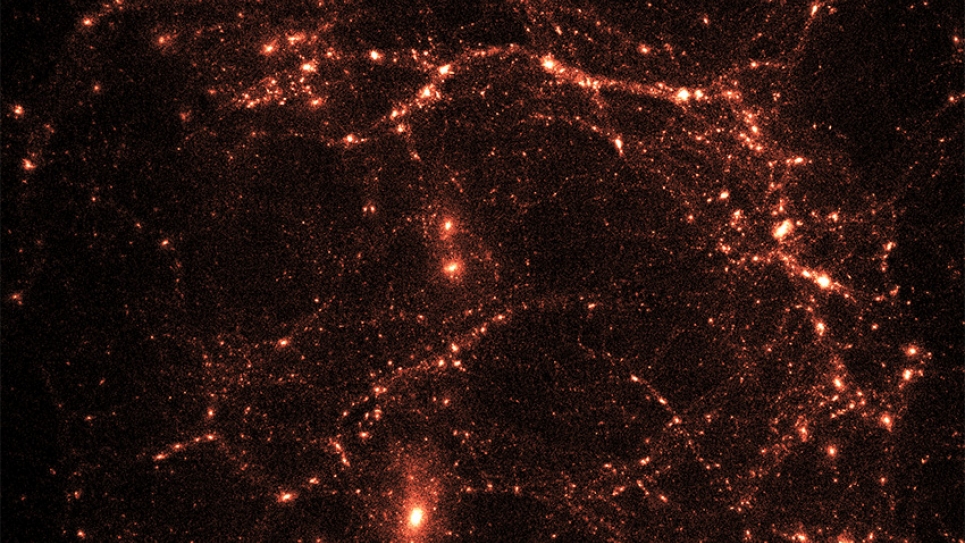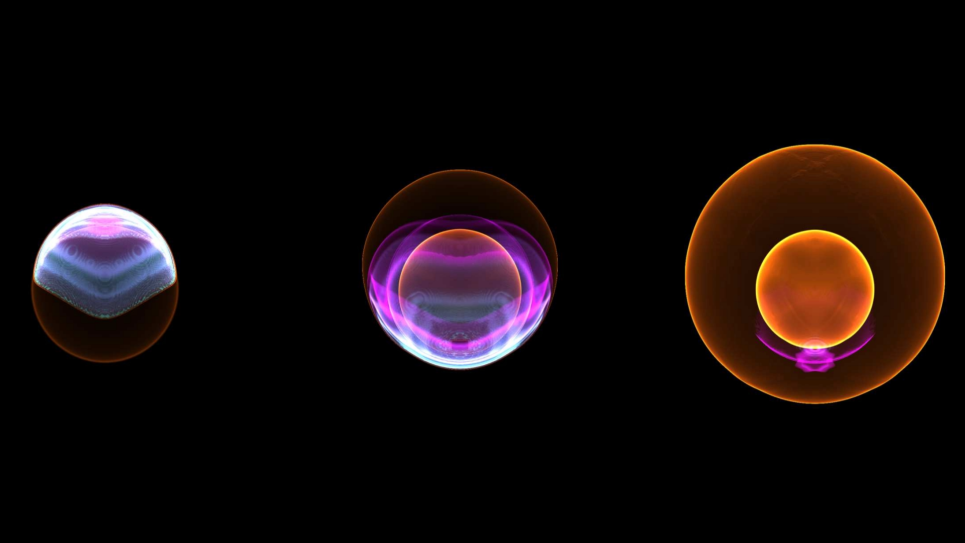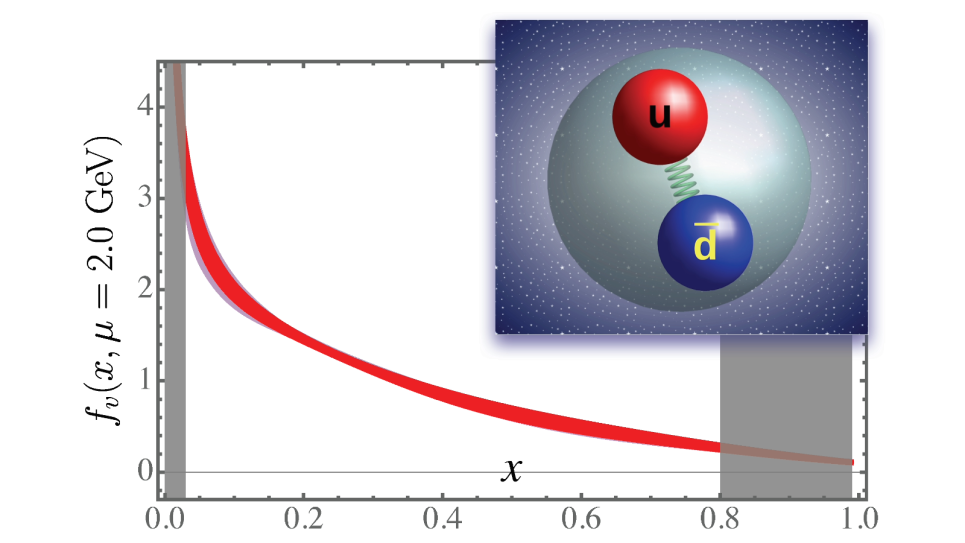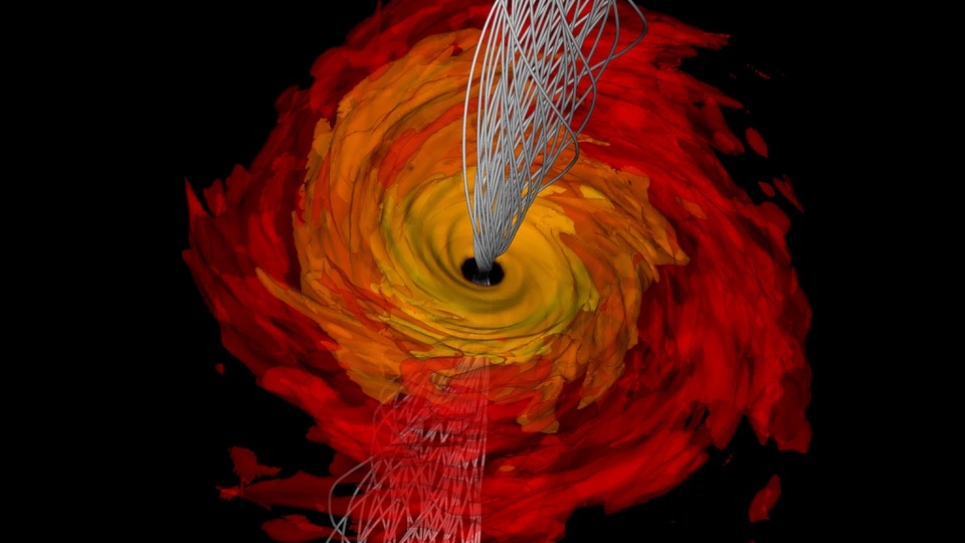
Cosmological Simulations for Large-Scale Sky Surveys
The focus of cosmology today is on its two mysterious pillars, dark matter and dark energy. Large-scale sky surveys are the current drivers of precision cosmology and have been instrumental in making fundamental discoveries in these areas. This INCITE project focuses on two main areas in computational cosmology, both of which rely on the Hardware/Hybrid Accelerated Cosmology Code (HACC): the generation of Cosmic Emulators, precision prediction tools for different cosmological observables spanning a large range of cosmological parameters; and the construction of sophisticated synthetic sky maps from very large high-resolution cosmological simulations.
Members of this collaborative INCITE project carried out their first set of simulations for cosmological models that include neutrinos and dynamical dark energy, an important extension of the Cold Dark Matter cosmological model awaiting next-generation sky surveys. With more than 20 models developed to date, these simulations will be part of the complete Mira-Titan Universe suite that will provide high-accuracy emulators for a variety of cosmological summary statistics. Analysis, so far, is focused on the matter power spectrum, redshift space distortions, the halo mass function, and the halo concentration-mass relation.
In addition, researchers are using the simulations to generate Data Challenges for the Dark Energy Science Collaboration of the Large Synoptic Survey Telescope project, and have begun creating maps built around the Sunyaev-Zel’dovich effect—a distortion of the thermal Cosmic Microwave Background (CMB) photon spectrum—to aid the cross-correlation of CMB measurements from the South Pole Telescope and galaxy clusters from the Dark Energy Survey.
To enable sharing of these large-scale simulation data and analysis tools, the team continues to develop its Portal for Data Analysis services for Cosmological Simulations (PDACS). Deployed on Argonne’s Magellan cloud computing platform, PDACS has enabled the sharing of processed data from the project’s Outer Rim simulations which, when carried out on Mira, evolved more than one trillion particles describing the distribution of matter in the universe.


